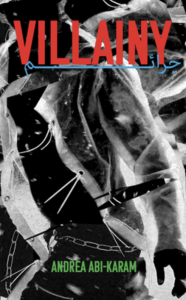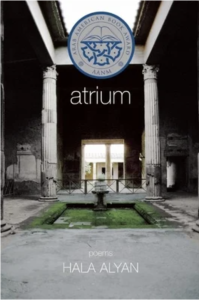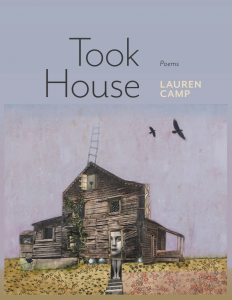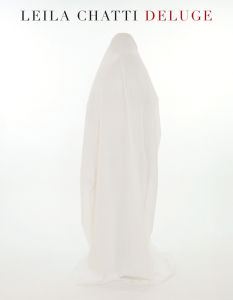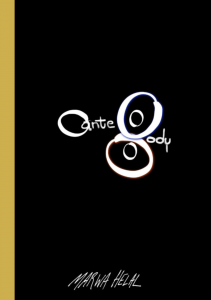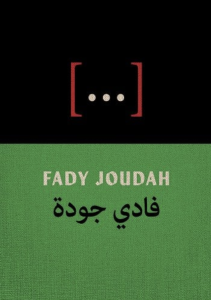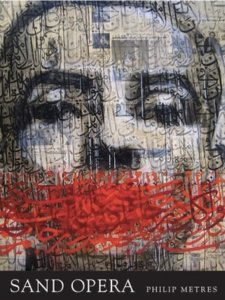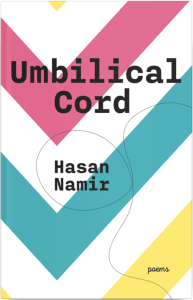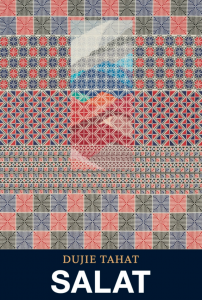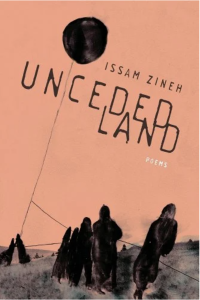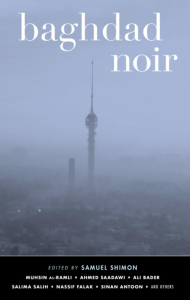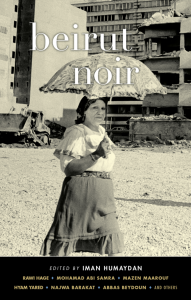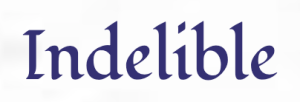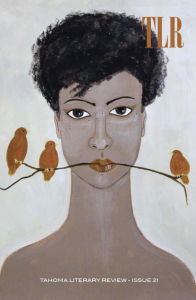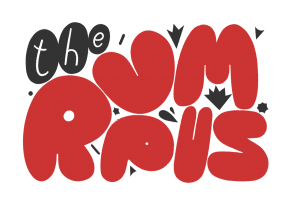For Arab American Heritage Month, observed annually during the month of April, we asked our member magazines and presses to share with us some of the work by Arab American writers, as well as Arab writers from around the world published in the United States, that they recommend reading in celebration.
Poetry Collections
Nightboat Books | 2021
Abi-Karam’s second poetry collection “foments political action in public spaces, and indexes the various emotional states, such as rage, revelry, fear, grief, and desire to which queers must tend during protest.”
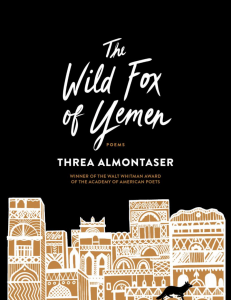 The Wild Fox of Yemen by Threa Almontaser
The Wild Fox of Yemen by Threa Almontaser
Graywolf Press | 2021
Almontaser’s debut poetry collection is “a love letter to the country and people of Yemen, a portrait of young Muslim womanhood in New York after 9/11, and an extraordinarily composed examination of what it means to carry in the body the echoes of what came before.”
Three Rooms Press | 2012
In her debut poetry collection, Alyan “traces lines of global issues in personal spaces with fervently original imagery and a fierce passion and intense intimacy.”
Tupelo Press | 2020
According to Hala Alyan, Camp’s poetry collection is “an astonishing, enchanted world of nature and cityscape, interior terrains, art-making and witnessing all at once.”
Copper Canyon Press | 2020
In her debut full-length collection, Chatti explores “themes of shame, illness, grief, and gender, transmuting religious narratives through the lens of a young Arab-American woman suffering a taboo female affliction.”
Nightboat Books | 2022
Ante body is “an incisive poetic sequence that tracks the relationship between migration and complex traumas in this unsparing critique of the unjust conditions that brought us the global pandemic.”
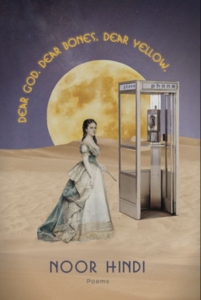 Dear God. Dear Bones. Dear Yellow. by Noor Hindi
Dear God. Dear Bones. Dear Yellow. by Noor Hindi
Haymarket Books | 2022
According to Zeina Hashem Beck, “Hindi’s searing poems navigate memory, violence, and inheritance with a candid and critical eye. Filled with heartache, tenderness, love, anger, and humor, they interrogate what it’s like to be woman, Palestinian, and American in today’s world.”
Milkweed Editions | 2024
In these poems, Joudah “offers multiple ways of seeing the world through a Palestinian lens—a world filled with ordinary desires, no matter how grand or tragic the details may be—and asks their reader to be changed by them.”
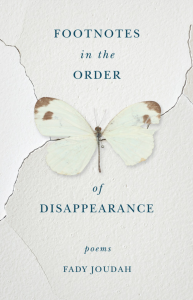 Footnotes in the Order of Disappearance by Fady Joudah
Footnotes in the Order of Disappearance by Fady Joudah
Milkweed Editions | 2018
Joudah’s fourth poetry collection features “love poems to the lovely and unlovely, the loved and unloved,” as well as a collaboration with Golan Haji, a Kurdish Syrian writer, to “foreground the imaginative act of constructing memory and history.”
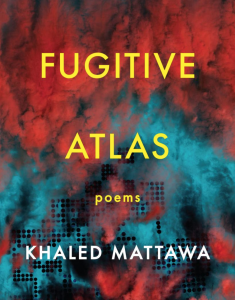 Fugitive Atlas by Khaled Mattawa
Fugitive Atlas by Khaled Mattawa
Graywolf Press | 2020
Mattawa’s latest poetry collection is “a sweeping, impassioned account of refugee crises, military occupations, and ecological degradation, an acute and probing journey through a world in upheaval.”
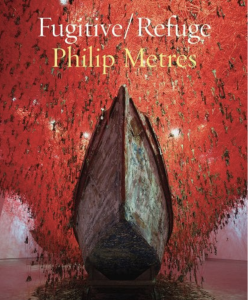 Fugitive/Refuge by Philip Metres
Fugitive/Refuge by Philip Metres
Copper Canyon Press | 2024
In this book-length qasida, Metres “follows the journey of his refugee ancestors—from Lebanon to Mexico to the United States—in a vivid exploration of what it means to long for home.”
Alice James Books | 2015
According to Fady Joudah, “In Sand Opera we encounter the poet’s inventive vision of art, and also his unforgettable tenderness: his songs to the world of children and to the children of the world.”
Book*Hug Press | 2021
In this collection, Namir “shares insight into his love story with his husband, the complexities of the IVF surrogacy process, and the first year as a family of three.”
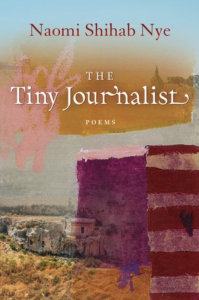 The Tiny Journalist by Naomi Shihab Nye
The Tiny Journalist by Naomi Shihab Nye
BOA Editions | 2019
Available as both a print book and an audiobook, this poetry collection “puts a human face on war and the violence that divides us from each other.”
Tupelo Press | 2020
According to Zeina Hashem Beck, “borrowing their structure from Muslim prayer…these poems remind the reader that poetry is a kind of prayer, that any prayer is a kind of searching.”
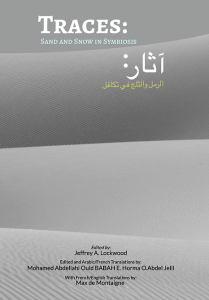 Traces: Sand and Snow in Symbiosis
Traces: Sand and Snow in Symbiosis
Translated from the French and Arabic by Max de Montaigne and Mohamed Abdellahi Ould BABAH E. Horma Abdeljelil
Middle Creek Publishing | 2024
Edited by Jeffrey A. Lockwood and Mohamed Abdellahi Ould BABAH E. Horma Abdeljelil, this collection features ekphrastic poetry by various Anglophone and Arabophone poets “to capture the ephemeral yet enduring essence of our passage.”
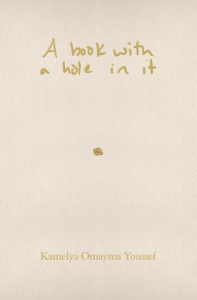 A book with a hole in it by Kamelya Omayma Youssef
A book with a hole in it by Kamelya Omayma Youssef
Wendy’s Subway | 2022
This poetry collection explores “the fallibility of language at the juncture of the multiple, intersecting wars on women, on ‘terror,’ on the non-White body, and on people and language in diaspora.”
Trio House Press | 2022
Zineh’s “capturing of the romantic and violent, the personal and the political, is a testament to his unwavering dedication to plumbing the depths of emotion that lie in psychological and physical territories alike.”
Nonfiction Books
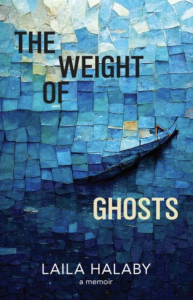 The Weight of Ghosts by Laila Halaby
The Weight of Ghosts by Laila Halaby
Red Hen Press | 2023
This memoir is “a lyrical reclaiming and an insistence by the author that she own the rights to her story, which is American flavored with an unreleasing elsewhere.”
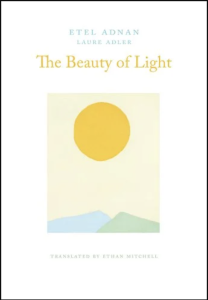 The Beauty of Light: Interviews with Etel Adnan
The Beauty of Light: Interviews with Etel Adnan
Translated from the French by Ethan Mitchell
Nightboat Books | 2024
This conversation with Laure Adler is “a lively and spontaneous interview with Etel Adnan about her absolute belief in the beauty of the world, the beauty of art.”
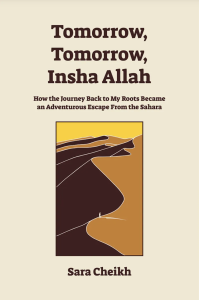 Tomorrow, Tomorrow, Insha Allah by Sara Cheikh
Tomorrow, Tomorrow, Insha Allah by Sara Cheikh
Feral House | 2023
This memoir “explores the plight and history of the forgotten Saharawi people as readers come to know Sara and her sometimes frustrating but always loving family.”
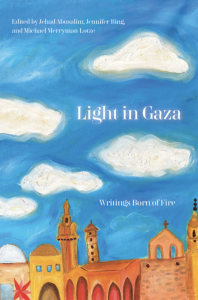 Light in Gaza: Writings Born of Fire
Light in Gaza: Writings Born of Fire
Haymarket Books | 2022
Edited by Jehad Abusalim, Jennifer Bing, and Mike Merryman-Lotze, this anthology is “a seminal, moving and wide-ranging anthology of Palestinian writers and artists.”
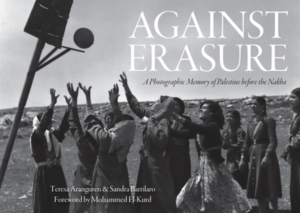 Against Erasure: A Photographic Memory of Palestine Before the Nakba
Against Erasure: A Photographic Memory of Palestine Before the Nakba
Haymarket Books | 2024
Edited by Teresa Aranguren and Sandra Barrilaro, this book is “a unique, stunning collection of images of Palestine in the late 19th and early 20th centuries and a testament to the vibrancy of Palestinian society prior to occupation.”
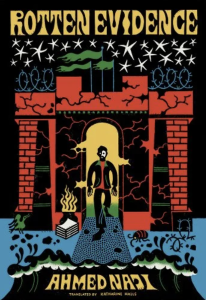 Rotten Evidence: Reading and Writing in an Egyptian Prison by Ahmed Naji
Rotten Evidence: Reading and Writing in an Egyptian Prison by Ahmed Naji
McSweeney’s | 2020
This chronicle of Naji’s time in prison “stands as a testament to the power of the creative mind, in the face of authoritarian censorship.”
Novels, Short Fiction Collections, and Fiction Anthologies
Akashic Books | 2018
Edited by Samuel Shimon, this anthology features stories set in Baghdad by Sinan Antoon, Ali Bader, Mohammed Alwan Jabr, Nassif Falak, and more.
Akashic Books | 2015
Edited by Iman Humaydan, this anthology features stories set in Beirut by Rawi Hage, Muhammad Abi Samra, Leila Eid, and more.
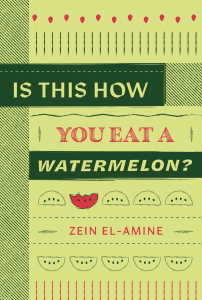 Is This How You Eat a Watermelon? by Zein El-Amine
Is This How You Eat a Watermelon? by Zein El-Amine
Radix Media | 2022
The seven stories in this collection “span war-torn Lebanon, Saudi Arabia, and the United States to tell stories of transit and survival.”
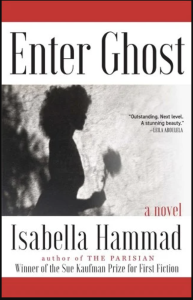 Enter Ghost by Isabella Hammad
Enter Ghost by Isabella Hammad
Grove/Atlantic | 2023
Hammad’s second novel, following a Palestinian production of Hamlet in the West Bank, “is a story of diaspora, displacement, and the connection to be found in family and shared resistance.”
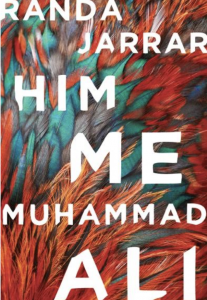 Him, Me, Muhammad Ali by Randa Jarrar
Him, Me, Muhammad Ali by Randa Jarrar
Sarabande Books | 2016
The stories in Jarrar’s collection “grapple with love, loss, displacement, and survival in a collection that moves seamlessly between realism and fable, history and the present.”
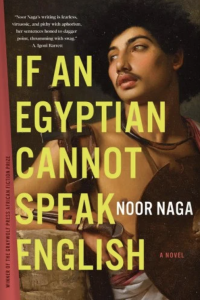 If an Egyptian Cannot Speak English by Noor Naga
If an Egyptian Cannot Speak English by Noor Naga
Graywolf Press | 2022
In this novel set in the aftermath of the Arab Spring, “an Egyptian American woman and a man from the village of Shobrakheit meet at a café.”
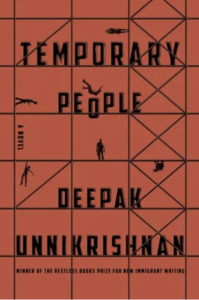 Temporary People by Deepak Unnikrishnan
Temporary People by Deepak Unnikrishnan
Restless Books | 2017
In 28 stories, Unnikrishnan follows guest workers “brought in to construct the towering monuments to wealth that punctuate the skylines of Abu Dhabi and Dubai.”
Literary Magazines
![]() “Standing Still” by Elmaz Abinader
“Standing Still” by Elmaz Abinader
Terrain.org | 2024
This essay begins, “I am told to stand at the first desk. / The border agent is blond, has a thin line of lips and never looks at me. I imagine him fishing in the lakes with his father whom I do not know.”
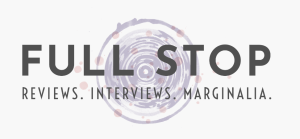 A Conversation with Andrea Abi-Karam
A Conversation with Andrea Abi-Karam
Full Stop | 2023
In this interview by Katherine Brewer Ball, Abi-Karam discusses “their time on tour with Sister Spit, performance poetry, and queer and trans modes of resistance.”
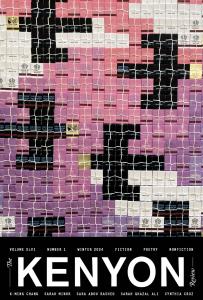 “What the Exiled Are” by Sara Abou Rashed
“What the Exiled Are” by Sara Abou Rashed
The Kenyon Review | 2024
This poem begins, “History’s blood crumbs; prisoners / on the other side of the gate….”
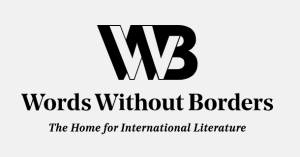 Against Silence: A Palestinian Writing Series
Against Silence: A Palestinian Writing Series
Words Without Borders | 2024
Selected and introduced by Lena Khalaf Tuffaha, this series “seeks to address the relative lack of Palestinian writing available in English translation, and just as crucially, the paucity of critical engagement with the literature that already exists.”
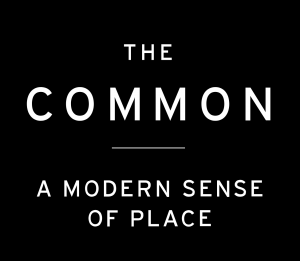 “Sandstorm” by Rasha Alduwaisan
“Sandstorm” by Rasha Alduwaisan
The Common | 2021
This poem begins, “There’s an itch in my throat like fox fur, / broom bush, cactus whittled to dust, / and my son thinks the city has vanished….”
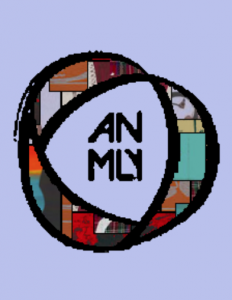 “Notes on Third World Subtraction” by Zaina Alsous
“Notes on Third World Subtraction” by Zaina Alsous
ANMLY | 2017
This poem begins, “THE DIFFERENCE BETWEEN SCARF AND VEILED / THE DIFFERENCE BETWEEN CONTRACT AND CAUGHT….”
 Arabic Short Stories from Palestine
Arabic Short Stories from Palestine
The Common | 2022
This special portfolio features short fiction by Mahmoud Shukair, Samira Azzam, Suhail Matar, Abeer Khshiboon, and more.
The Common | 2019
This special portfolio features stories by Luqman Derki, Shahla Al-Ujayli, Mohammad Ibrahim Nawaya, Raw’a Sunbul, Haidar Haidar, and more.
![]() “if i had fallen in love” by Rabha Ashry
“if i had fallen in love” by Rabha Ashry
Another Chicago Magazine | 2024
This poem begins, “if I had fallen in love that summer / in my little slip dresses and boots the color of blood, / lips a bite of strawberry and hair a wild story, / I might have been beautiful….”
 Claiming a Place in the World: Life Writing by Women in Arabic
Claiming a Place in the World: Life Writing by Women in Arabic
Words Without Borders | 2020
This series features work in translation by women authors from the Arab world, countering “the assumption that women’s life writing would tend toward the domestic and private spheres.”
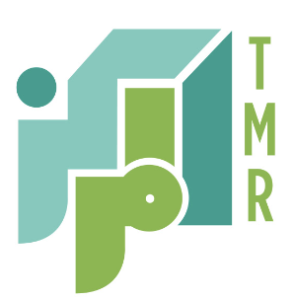 “Al-Thakla—Arabic as the Original Mourner” by Abdelrahman ElGendy
“Al-Thakla—Arabic as the Original Mourner” by Abdelrahman ElGendy
The Markaz Review | 2024
This essay begins, “How do you hold your grief in a language that’s been its main perpetrator?”
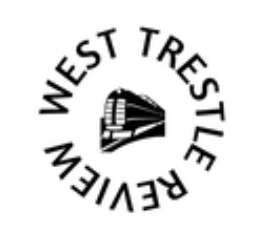 “Tala (Ode to the Girl Palm)” by Majda Gama
“Tala (Ode to the Girl Palm)” by Majda Gama
West Trestle Review | 2020
This poem begins, “When I ate the fruit of the date palm delivered fresh / to me from an oasis in the empty quarter, admired / the gilt-twined bag the fruit lay in….”
![]() “We all need something to believe in.” by Monica George
“We all need something to believe in.” by Monica George
Wellspringwords | 2023
This poem begins, “We’re born into the chaos of humanity, taught that we need to believe in something and understand everything.”
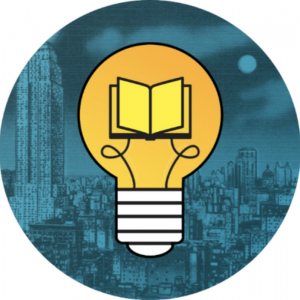 “We Deserve Better Than the Live-Action Aladdin” by Olivia Giovetti
“We Deserve Better Than the Live-Action Aladdin” by Olivia Giovetti
Electric Lit | 2019
This essay begins, “I spent the better part of 1993 watching two VHS tapes on endless repeat: Disney’s Aladdin and the lesser-known 1955 MGM musical Kismet.”
Indelible | 2023
This poem begins, “People talk of chemistry, of fields of energy, / of parallel universes. Some recount / at least ten dimensions in which so much / could be recovered…”
Adi Magazine | 2023
This poem begins, “you feed me // i fumble to find // holes // is this a disappearing game or stretching membrane?”
The Kenyon Review | 2024
This poem begins, “Then I was again / that vacant room. Guests were // various: my death again / and beautiful.”
 “A Secret Life” by Yasmin Mariam Kloth
“A Secret Life” by Yasmin Mariam Kloth
West Trestle Review
This poem begins, “There’s a process to the pomegranate / most people don’t see. First, / you hold her round body / in your open palm….”
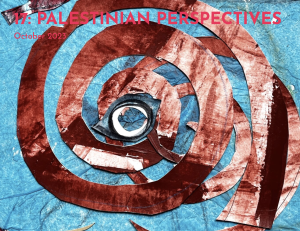 “For the Dead Among Us” by Lisa Suhair Majaj
“For the Dead Among Us” by Lisa Suhair Majaj
Adi Magazine | 2023
This poem begins, “We will open the day for you, / and the night. We know / that you are beneath the earth, / or ash on the wind. But in / some space or time you still / live.”
The Markaz Review | 2024
In this photo essay, “a young Palestinian American attempts to find a way out of her grief with a series of stark images.”
 “A Cairo Meet Cute That’s More Than it Seems,” A Conversation with Noor Naga
“A Cairo Meet Cute That’s More Than it Seems,” A Conversation with Noor Naga
Electric Lit | 2022
In this conversation with Doma Mahmoud, Naga says, “There is the book that I’m writing and there’s the book the American girl is writing in the book. In many ways, her text is meant to be presented to an American English-speaking audience.”
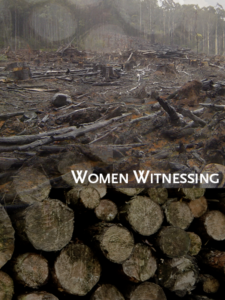 “My Grandmother Said” by Naomi Shihab Nye
“My Grandmother Said” by Naomi Shihab Nye
Dark Matter: Women Witnessing | 2015
This poem begins, “They just don’t know our stories, / (after being tear gassed by Israeli soldiers, / she held the cut onion, the hankie to her face)— / If they knew our stories, they would behave a different way.”
![]() “Hiding Place Inside the Early Hour” by Naomi Shihab Nye
“Hiding Place Inside the Early Hour” by Naomi Shihab Nye
Terrain.org | 2017
This poem begins, “You’re there, Dad. / A fold in the sky’s softest cloth— / what rises as we sleep….”
Cincinnati Review | 2023
This poem begins, “My mother used to lock herself in the wax room / Drip drip drip you’d hear / Run down the wooden furniture….”
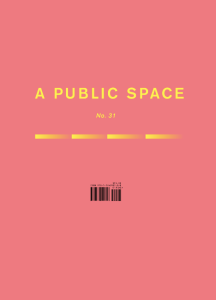 “The Funeral” by Mahreen Sohail
“The Funeral” by Mahreen Sohail
A Public Space | 2024
This story begins, “Yesterday I went to my aunt’s funeral. She was my father’s older sister. Long before he died we lost touch with her and my uncle and their sons.”
The Common | 2023
This poem begins, “I have learned to rebuild from my parents— / the way to smooth the cracks in a wall, / that when a bullet shatters the window— / new panes of glass can be brought in.”
 “In the Walgreens Parking Lot on 44th & Indian School, Another Massacre” by Fargo Tbakhi
“In the Walgreens Parking Lot on 44th & Indian School, Another Massacre” by Fargo Tbakhi
ANMLY | 2020
This poem begins, “sidles its way onto my screen. a bomb / has struck a Gazan school, a tangle of limbs / untangled. a cookout of cousins, their breaths / taken for granted, then un-granted, taken.”
![]() “What is a Homeland?” by Mosab Abu Toha
“What is a Homeland?” by Mosab Abu Toha
Arrowsmith Journal
This essay begins, “In Gassan Kanafani’s celebrated novella Returning to Haifa, Said, the protagonist, asks his wife, Safiyya, ‘Do you know what homeland is? It is where nothing like this happens.’”
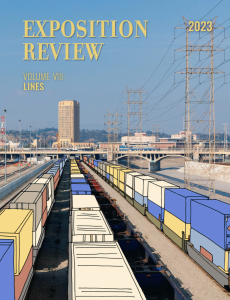 “First Generation” by Lena Khalaf Tuffaha
“First Generation” by Lena Khalaf Tuffaha
Exposition Review | 2023
This poem begins, “Our parents told us, if we left, it was for fear / of what might fall: / the structures that house us, // the sky itself, breached, defenseless.”
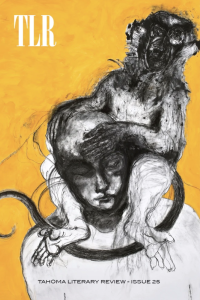 “Notes from the Civil Discourse Committee” by Lena Khalaf Tuffaha
“Notes from the Civil Discourse Committee” by Lena Khalaf Tuffaha
Tahoma Literary Review | 2023
This poem begins, “It was ‘the first time’ I took my daughter / to a protest. She was three weeks old and / my ligaments, my language still loose, / the ground beneath me precarious….”
 “Night Flight” by Saadi Youssef
“Night Flight” by Saadi Youssef
Translated from the Arabic by Khaled Mattawa
Cincinnati Review | 2023
This poem begins, “These planes that creep away / in the middle of the night, / their engines off, / careless and lumbering, / where do they go?”
The Common | 2021
This poem begins, “Water. / At the shore we don’t build anything. Behind our sunglasses, our eyes dart in every direction. A man carries a sandcastle on his back.”
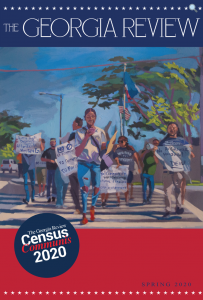 “The Citizenship Question, or, The Actors of Dearborn” by Ghassan Zeineddine
“The Citizenship Question, or, The Actors of Dearborn” by Ghassan Zeineddine
Georgia Review | 2020
This story begins, “Before arriving at Uncle Sam’s house on the corner of Yinger and Gould Streets, Youssef Bazzi had been canvassing the neighborhoods in East Dearborn for over a month, knocking on doors throughout the day and late into the night, despite the heat or rain.”
Tahoma Literary Review | 2021
This poem begins, “This part of the cape is known for oysters. That part’s known for turnips. // The playhouse is closed until next season. I keep reporting in this way.”
The Rumpus
This column is “an inclusive series for Southwest Asian and North African (SWANA) and SWANA diaspora writers, curated by Michelle Zamanian.” Featured writers include Sara Elkamel, Mary Barghout, Summer Farah, and more.
The Common | 2021
This special portfolio features fiction by Tariq Al Haydar and Farah Ali, nonfiction by Keija Parssinen, poetry by Hala Alyan and Rasha Alduwaisan, and more.
